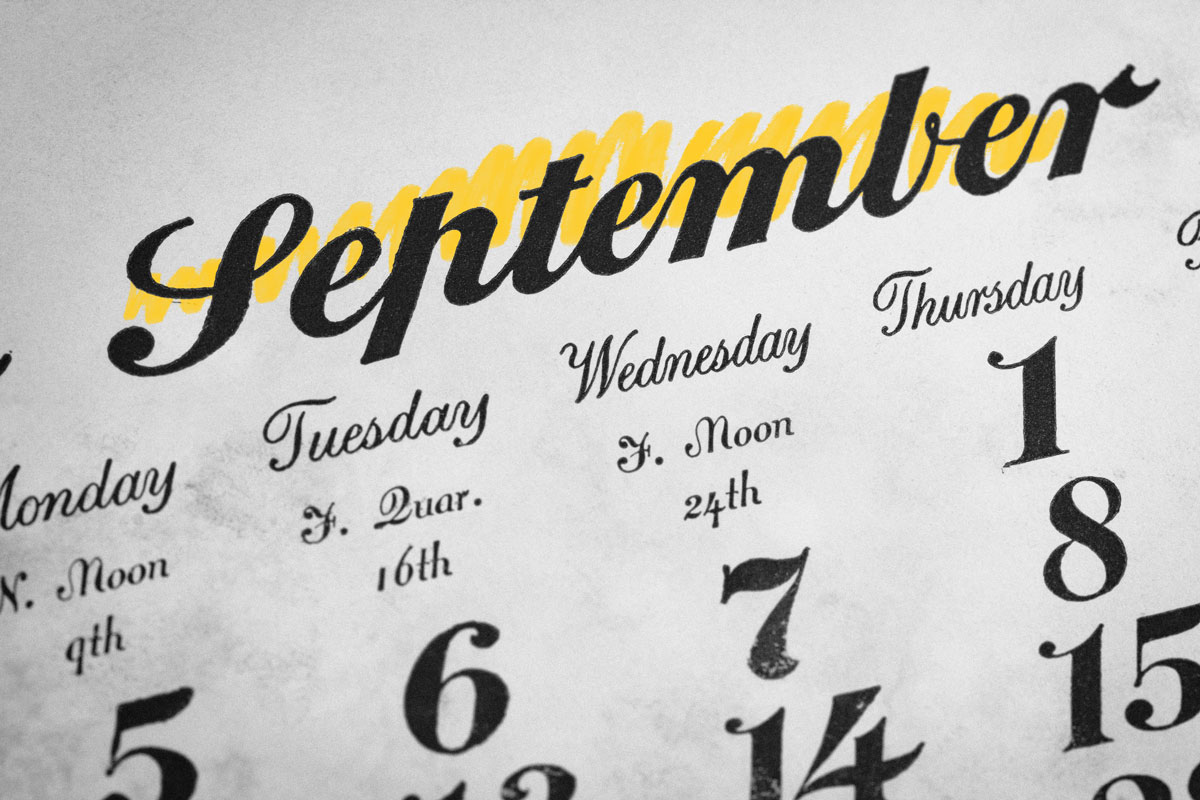September was originally the seventh month of the year.
Septuplets are seven siblings born at the same time; a septennium is a period of seven years; and September is the… ninth month of the year. What gives? As you may expect, “sept” is a prefix with Latin roots that means “seven,” and it didn’t end up at the beginning of the word “September” by accident.
The month of September was originally part of the Roman republican calendar, which was used in ancient Rome for hundreds of years before the debut of the Julian calendar in 46 BCE. At first, the Roman republican calendar included just 10 months. The last six months all corresponded to their Latin numbers, which is how not just September but also October (meaning “eighth”), November (“ninth”), and December (“tenth”) all got their names. (The fifth month, Quintilis, and the sixth month, Sextilis, were later renamed after Roman rulers.)
January and February joined the calendar later as the first and last month, respectively, but nobody changed September’s name, despite it quite literally meaning “seventh” for the Latin speakers in ancient Rome. The name stuck even after February shifted to second in order in 452 BCE, meaning that September has been the ninth month for much longer than it was ever the seventh month of the year.







